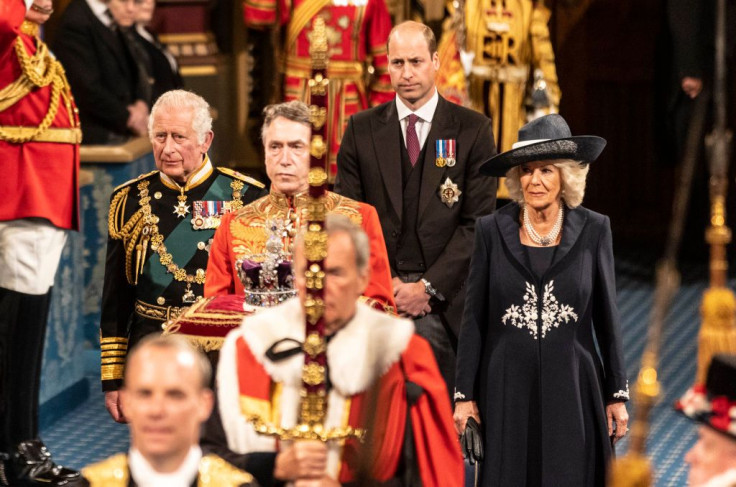Prince Charles Nervous During Queen's Speech After Camilla's 'Anxiety Signal,' Expert Claims
KEY POINTS
- Prince Charles stepped in for his mother after Queen Elizabeth pulled out of the State Opening of Parliament amid health concerns
- Prince Charles' body language signaled "a desire to imply control and even leadership" when he arrived at the venue, an expert claims
- Judi James claimed that the royal's nervousness was "obvious" when he delivered the Queen's speech
Prince Charles was nervous when he delivered the Queen's speech for the first time ever at the State Opening of Parliament Tuesday, a body language expert has claimed.
The Prince of Wales stepped in for his mother Queen Elizabeth II after the 96-year-old monarch pulled out of the State Opening of Parliament and the reading of the Queen's speech in Westminster, London, for the first time in nearly 60 years because of "episodic mobility problems."
Judi James analyzed the body language of Prince Charles and his wife Camilla, Duchess of Cornwall during the ceremony and suggested that he appeared distracted before delivering the speech on behalf of his mother.
"Charles appeared preoccupied with the crown that sat in front of him, gazing at it for several moments before he was given the speech to read," the body language expert told Mirror U.K.
Prince Charles and his oldest son Prince William were jointly given the authority to open Parliament on the Queen's behalf during the constitutional ceremony, which sets out the U.K. government's legislative plans.
When he arrived at the venue, Prince Charles' body language signaled "a desire to imply control and even leadership," James claimed. However, the expert suggested that he also showed "undeniable signs of nerves."
"There were some directional steering gestures to his wife and Black Rod on the way into the building and even some smiles of greeting, but he became more somber, and there were some undeniable signs of nerves as he took the walk to the throne room," James claimed.
She continued, "He took a deep breath on the way in and performed a jaw-jut and sideways wobble as though bracing himself. As he arrived at the archway to the throne rooms, his head suddenly jerked up to either look at the arch or the throne."
The body language expert suggested that Duchess Camilla's "anxiety signals," which included her left hand tapping on the arm of her throne and her feet making jittery movements on the floor, may have led to Prince Charles' nervousness escalating when he read the speech.
As Camilla did this, James said she noticed that Prince Charles' nervousness "became more obvious." She claimed that the royal's hands "shook while he held and read the notes of the Queen's speech, making the pages flap as he held and turned them."
Buckingham Palace released a statement Monday confirming that Queen Elizabeth will miss the annual occasion amid health concerns.
"The Queen continues to experience episodic mobility problems, and in consultation with her doctors has reluctantly decided that she will not attend the State Opening of Parliament tomorrow," read the palace's statement, Us Weekly reported. "At Her Majesty’s request, and with the agreement of the relevant authorities, The Prince of Wales will read The Queen’s speech on Her Majesty’s behalf, with The Duke of Cambridge also in attendance."
Queen Elizabeth has been attending the event since 1952, with the exception of 1959 and 1963, when she was pregnant with Prince Andrew and Prince Edward, respectively. The Queen's speech was delivered by the Lord Chancellor during her previous absences, the BBC reported.

© Copyright IBTimes 2024. All rights reserved.






















